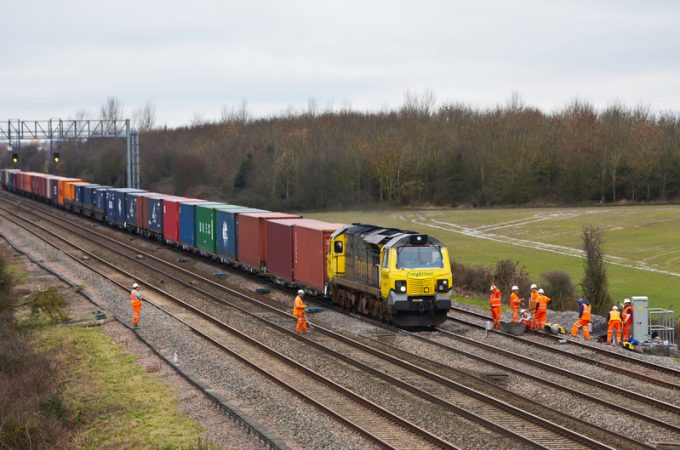UK stowaway rule risks collapsing haulage sector
Stakeholders are calling on the government to change migration rules that have caused a “significant” rise in ...

UK rail freight operators have given up some 50% of their weekly path allocations – an astonishing 4,072 a week – following a two-year review into the industry by freight rail operators and infrastructure manager Network Rail.
The paths – slots a freight train has on the railway and in the timetable – can be available to either freight or passenger services, although 1,000 of them have been reserved for future rail freight growth.
“The rail freight market can have the confidence that future traffic growth can take place without being hindered by the need to always build additional capacity,” Network Rail said in a statement.
Paul McMahon, Network Rail’s managing director for freight and national passenger operators said: “It is important the whole rail industry works together to make best use of existing capacity to minimise the need for additional expensive capacity enhancement schemes.
“This is a real win-win and has truly been a collaborative piece of work with the freight operators.
“Capacity has been freed up for the whole railway but essential capacity is reserved for freight operators. This is important, given the need to support the growth of freight on the network to support the economy.”
Russell Mears, chief executive of Freightliner and chair of the Rail Delivery Group’s freight unit, said: “The freight operators and Network Rail have worked together in an effective and pragmatic way for the wider industry good. While retaining some key paths as strategic capacity to support future freight growth, the release of other residual paths is essential in helping the government get the best value for money from our capacity-constrained railway.”
Network Rail cited three main reasons why such a large tranche of capacity could be so easily found: an “unprecedented” decline in the number of coal rail shipments over the past two years, along with declining iron and steel traffic; the increasing efficiency of freight trains, now running “longer, fuller and heavier”; and better freight train timetabling, which is seeing a reduced number of partly loaded trains and less wasted capacity.
Comment on this article